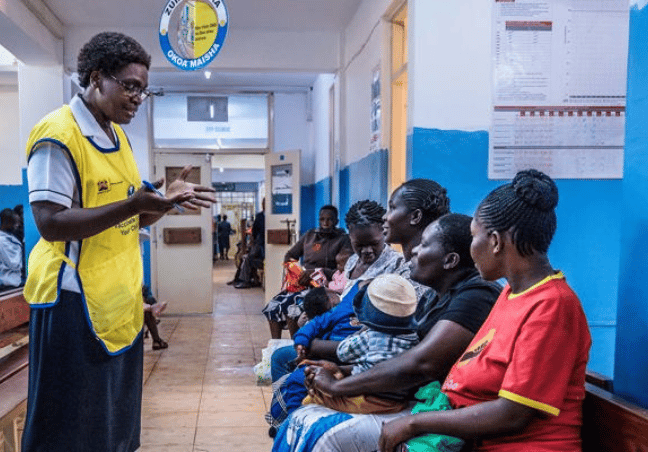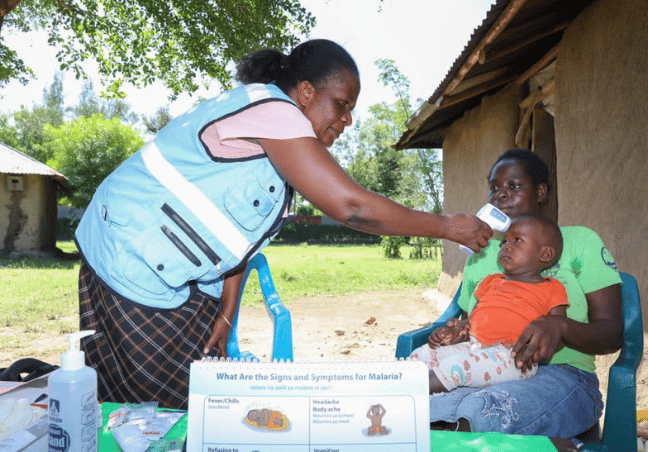Dear subscriber, this is a prototype. Please help us with feedback and tips. Just press reply.
The Global Fund to Fight AIDS, Tuberculosis and Malaria has secured over $1 billion in new private sector pledges on the sidelines of the United Nations General Assembly in New York. The Gates Foundation leads with $912 million, maintaining its position as the Global Fund’s largest private donor. The funds will improve health access across Africa.
The direct investment to Global Fund is in contrast to the recently released US government’s global health plan which sidelines big international programmes. The “America First” strategy will directly deal with each government in Africa unlike this which recognises the role of multilateral organisations.
These pledges were announced during the Global Fund’s Eighth Replenishment reception and come at a time when climate change is intensifying health challenges like rise in malaria, cholera, TB and other infectious diseases in Africa.
Our take: While contributions to global health indirectly fund climate-health, there is still a big funding gap in climate resilient health systems…Read more (2 min)
Vaccines lower the risk of people contracting climate-sensitive infectious diseases. However, it is hard to keep vaccines at correct temperatures in rural off-grid areas in Africa. In an exclusive interview, Ali Umar, an experienced cold chain officer in Nigeria, explains how solar direct drive refrigerators have helped in preserving vaccines in rural areas.
Vaccines can only work if they are administered while still potent, meaning while capable of providing protection against diseases. This is only possible if a cold chain is maintained. This means storing the vaccines within a temperature range of 2°C to 8°C, from the time they are manufactured until they are administered.
“We used to administer non-potent vaccines and it led to so many outbreaks. These refrigerators have been essential in making vaccines safe and accessible,” says Mr Umar.
Read the full Q&A here…Read more (2 min)
A new agreement between UNAIDS and the Africa CDC will support the sourcing, training, reskilling and deployment of over two million community health workers across Africa. This will support access to care in hard-to-reach rural and emergency settings. It targets outreach to populations most at risk of being left behind during climate crises and emergencies.
The Johnson & Johnson Foundation has also pledged $5 million to the Global Fund to accelerate the scale-up of professionalised community health workers across Africa.
Community health workers (CHWs) are key to tackling climate-related health challenges in Africa. They act as the first point of contact in vulnerable communities and promote climate resilience through education and essential services delivery.
Our take: While CHWs are recognised for their role in strengthening community health systems in Africa, only 14% of them receive stipends, about $35 on average…Read more (2 min)
____________________


The Africa CDC partners with the Novo Nordisk Foundation to strengthen public health workforce capacity for Non-Communicable Disease (NCD) surveillance in Africa
Events
🗓️ Participate in the World Health Expo in Kenya (October 6)
🗓️ Attend the Healthcare Innovation Summit in South Africa (October 22)
🗓️ Attend the International Conference on Public Health in SA (October 24)
Jobs
🧑⚕️ Be the Associate Director, Cancer Centre at Aga Khan (Kenya)
🧑⚕️ Apply for the Nutrition Programme Officer at WFP (Madagascar)
🧑⚕️ Become a Public Health Officer at West Harerge (Ethiopia)
Various
💉 Africa launches a joint coordination team for health
💉 Africa explores innovative finanacing in health
💉 The US supports Mozambique’s HIV and TB response with $160 million
Seen on LinkedIn
Robert Pearl, a business expert says, “At least 90% of startups collapse. And, in healthcare, the odds are even worse. Why do so many “game-changing” health innovations fail? It's rarely because of the product. More often, it's because founders overlook how medicine actually works: how doctors think, what hospitals buy, the way patients pay (or don’t). The result of these common oversights? Tools that promise to save lives never reach the doctors or patients who need them.”__


